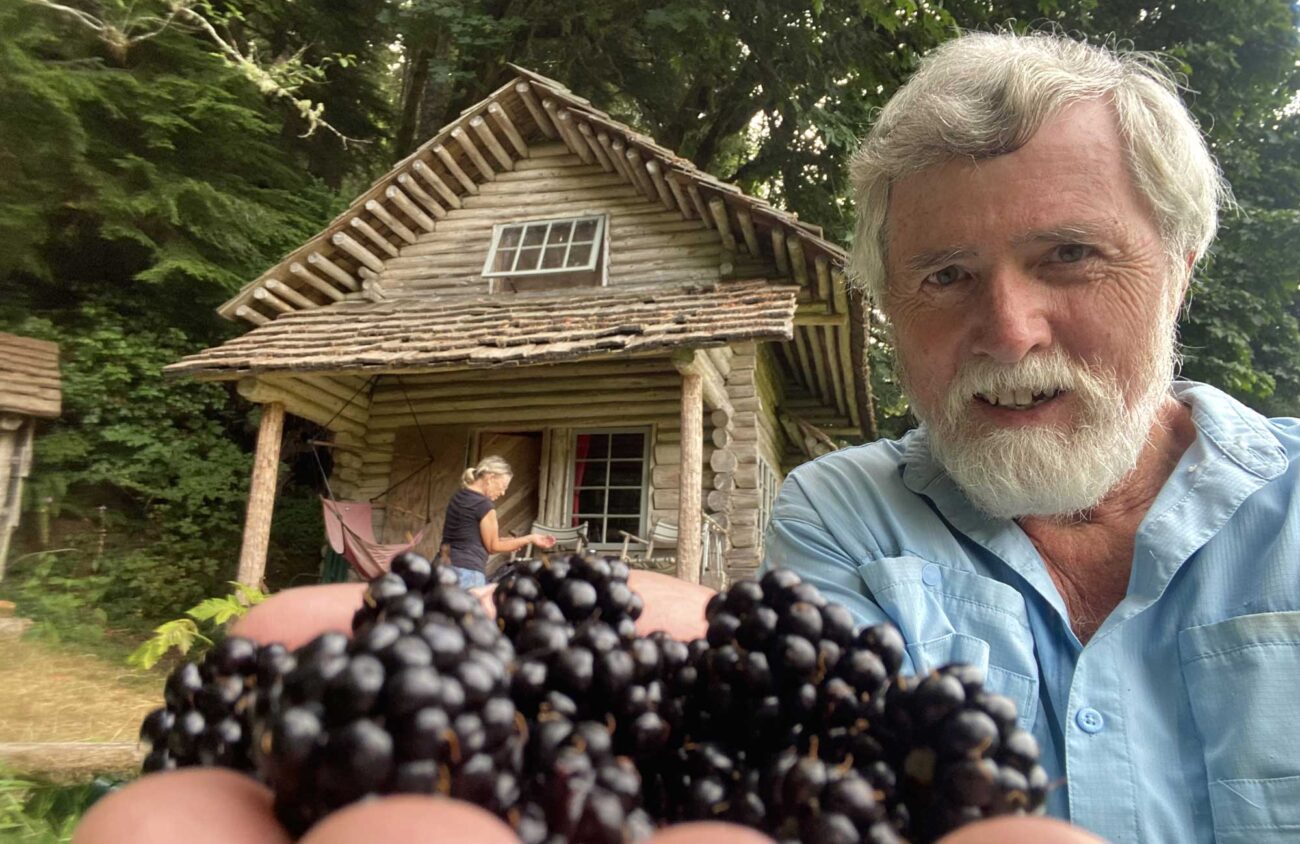When life gives you lemons, of course you should make lemonade. But in Oregon, you’re much more likely to get blackberries.
After years of fighting blackberries, I came to the Zen-like realization that I could farm them instead.
It’s amazingly easy to turn blackberries into jelly, syrup or wine. I’ll tell you how in a minute. But first, let me stress that you should be strict with blackberries.
The thorny bushes in your yard or along your fence are invasive weeds. They should not be allowed to spread. The only blackberry native to Oregon is a dwarf bramble. You can walk over its low, spidery vines without noticing. Its berries are so small you probably won’t notice them, either.
The giant stickery bushes that take over fields are either Himalayan blackberries (from Armenia) or frilly evergreen blackberries (from Eurasia). Mowing these aliens sets them back only a little. Digging up their roots will work, but only if you keep checking for years. Penning a herd of hungry goats on top of them might help. To completely defeat alien blackberries in Oregon, you pretty much have to plant a Douglas-fir forest. Deep shade kills the vines.
When I decided I didn’t want a tree farm in the pasture of my Coast Range log cabin, I switched my blackberry strategy to horticulture. Now I allow exactly three blackberry patches, each the size of a pickleball court. In March, I patrol the rest of the field with a hoedad, digging up wayward sprouts. In August I walk around the designated patches with hedge clippers, lopping off long, thorny guard branches — these don’t bear fruit and just get in the way. I trim each patch into an asterisk shape, so pickers can reach berries in the middle.
Labor Day weekend is the time for a first harvest In the Coast Range. In the warmer Willamette Valley blackberries may ripen earlier. After two weeks you can get a second picking.
When you’ve collected at least a gallon of berries, dump them into a vat of water to rinse them off. Scoop them out with your hands, put them in a pot, and cook them on a stove. Stir occasionally. When they’re hot, mash the berries with a spoon.
As soon as the mash starts to boil, it’s time to get rid of the skins and seeds. Take the pot off the stove, dip out a cup of mash, and pour it through a wire mesh strainer into a bowl. Keep scraping the mesh with a spoon to squish out the juice. Throw the purple muck that’s left into the compost.
So far you will have produced a bowl of juice — and probably a big mess. Blackberry stains are blood-red when fresh. Like blood, they need to be washed out quickly in cold water. If you wait, the stains turn purple and are permanent.
If you want syrup or jelly, measure the juice as you pour it back into your cooking pot. For every cup of juice, add a cup of sugar. Watch the pot until it boils, stirring all the time. Then watch the clock. For syrup, let the juice come to a full boil for exactly one minute. For jelly, let it boil for two minutes. You don’t need pectin.
Pour the boiled juice into Mason jars, clean the rims, put boiled rubber-lined lids on top, and screw down the metal rings. As the jars cool, the lids should seal with a “ping!” Only the jars that don’t seal will need refrigeration.
Blackberry wine is even simpler. Don’t recook the juice at all. Just pour it into a glass carboy, add some Bourgovin wine yeast ($3 a packet at a winemaking shop), and stopper the jug with a water-filled airlock. The result will be a very dry, slightly bitter wine. For a tastier dessert wine, add two cups of sugar per gallon of juice. Boil the sugar with an equal amount of water and add that to the carboy.
The rate of bubbling in the airlock tells you how fast things are fermenting. Do not bottle the wine early, even if the bubbles slow down. Wait at least three months. I can vouch that a single exploded bottle of blackberry wine can turn an entire basement into a disaster area.
By the winter holidays you should have jars of blackberry jelly to give as gifts, and blackberry wine to toast the new year. Better yet, you’ll have made peace with the vines in your yard.
Yes, they are invasive aliens, but they make really nice wine. Blackberries and I have learned to coexist.
William L. Sullivan is the author of 23 books, including The Ship in the Woods and The Updated 100 Hikes Series For Oregon. Learn more at OregonHiking.Com.

